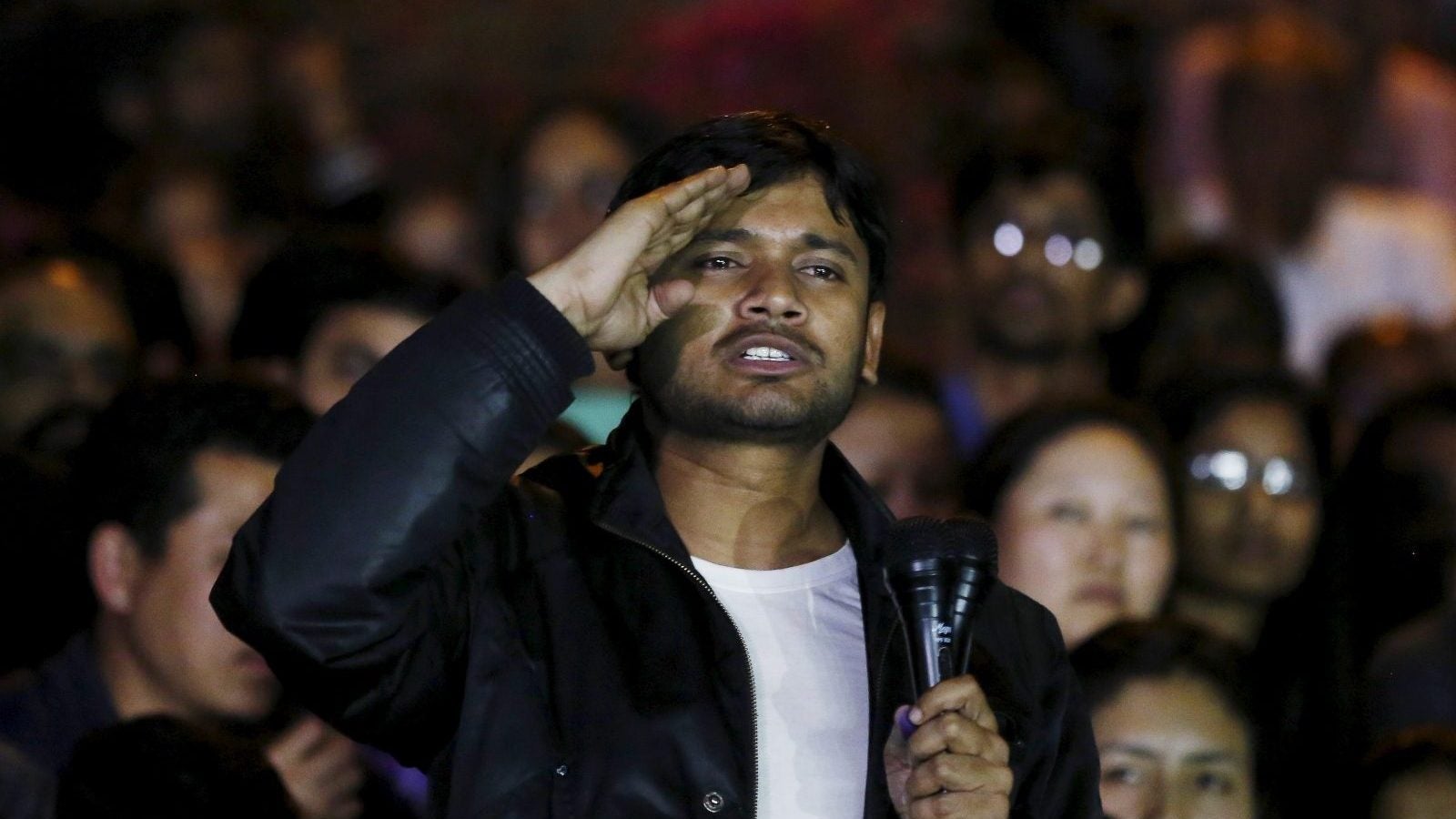Once “azadi” got students arrested—now all Indians are raising the slogan
If youthful insolence ever had a clarion call, India’s ubiquitous azadi slogan would be the chosen one.


If youthful insolence ever had a clarion call, India’s ubiquitous azadi slogan would be the chosen one.
When it first entered popular consciousness in 2016, this single-word chant was ridiculed, shunned, and branded “anti-national” by most, particularly India’s right-wing nationalists. No surprises there, since azadi is Urdu for freedom, which gave it a treasonous ring.
Its simplicity is what makes it popular since one only needs to suffix it to any “evil” that must be fought. So it could be “bhookmari se — azadi” (From hunger — freedom!) or “Jaatwad se — azadi” (From casteism — freedom!), and so on.
With its earthy rhythm, the string of catchy and rousing azadi slogans can be unending, given the number of socio-economic problems India faces.
No wonder, it has sprung back vigorously from the seditious corner it was pushed into. Today, it has become inseparable from protests involving Indian youngsters and evokes an unmissable anti-establishment spirit. The latest instance being the ongoing countrywide upheaval led by university students against a newly enacted law perceived to be unjust to the Muslim community.
Interestingly, the chant isn’t restricted to any anti-establishment mood anymore. Those in support of the government, too, have adopted the slogan gleefully.
Feminists first
The first time azadi was used as part of a women’s conference was in 1991 by Kamla Bhasin, a feminist activist, at Kolkata’s Jadavpur University in West Bengal, the Hindustan Times newspaper reported in 2016. The lyrics of her chant were:
“Meri behane maange — azadi;Meri bachhi maange — azadi;
Naari ka naara —azadi
(My sisters demand — freedom;My daughter demands — freedom;
Every woman’s slogan — freedom).
Bhasin, in turn, was inspired by feminists across the border.
“I had learnt [this] slogan from Pakistani feminists and later improvised the words. The words would change many times depending on what we were protesting against, discrimination on the basis of caste, injustice to tribals or violence against women,” she told the newspaper.
Eventually, it became a popular poem for the Left’s movements.
In February 2016, less than two years since the Narendra Modi first became India’s prime minister, New Delhi’s Jawaharlal Nehru University (JNU) campus suddenly erupted with this slogan—led by its irrepressible student union leader Kanhaiyya Kumar. The Delhi police arrested him for allegedly organising a seditious event at which anti-India slogans were reportedly raised. The event was in protest of the hanging of Mohammed Afzal Guru, a convict in the 2001 suicide attack on the Indian parliament.
Kumar was later released by courts after learning that he wasn’t present at the event at all. The identities of those who raised seditious slogans at JNU, a known Leftist bastion, are yet to be established.
On the night he was released, hundreds of rebellious and exultant JNU students met in the campus and chanted the azadi slogan, which was telecast live by Indian media.
Ever since, the slogan has developed a life of its own.
Soon, azadi was being chanted on streets, college campuses, protest marches, and agitational venues.
It even made it to Bollywood shortly. Rap artiste Dub Sharma had created a video using parts of Kumar’s speech, superimposing it with a powerful song on corruption and oppression.
This composition was so evocative of a generation fighting back that it got featured in Gully Boy, India’s entry to the Oscars in 2019. However, in the movie, it was stripped entirely of politics.
Around the time of the film’s release in February this year, India was gearing up for general elections. The country’s grand old party, the Indian National Congress, used Sharma’s rap featuring Kumar’s azadi slogan to ask for freedom from prime minister Narendra Modi’s regime.
Modi’s Bharatiya Janata Party responded by reinterpreting azadi, tongue-firmly-in-cheek, as seeking an India free of Congress. It was perhaps the biggest irony that the BJP used a slogan that Kumar had chanted to protest violence from Akhil Bharatiya Vidyarthi Parishad, the BJP’s student arm.
By now, azadi has also evolved into the Indian Gen Z’s indigenous woke paradigm. When India joined Greta Thunberg’s global climate change strike on Sept. 20, the chant emerged as a favourite. This time, it was a call for freedom from pollution, dependency on fossil fuels, and carbon emissions.
Various student protests across the country now regularly repurpose azadi—language being no barrier.
From Malayalam-speaking Kerala:
From Tamil-speaking Tamil Nadu:
From India’s easternmost state of Arunachal Pradesh:
Kerala-based playback artiste Pushpavathy composed a soulful rendering of the JNU speech in April 2016.
Earlier this week, Kumar himself was seen leading a rally in Patna in the eastern Indian state of Bihar, as part of the current nationwide protest against the controversial citizenship law.